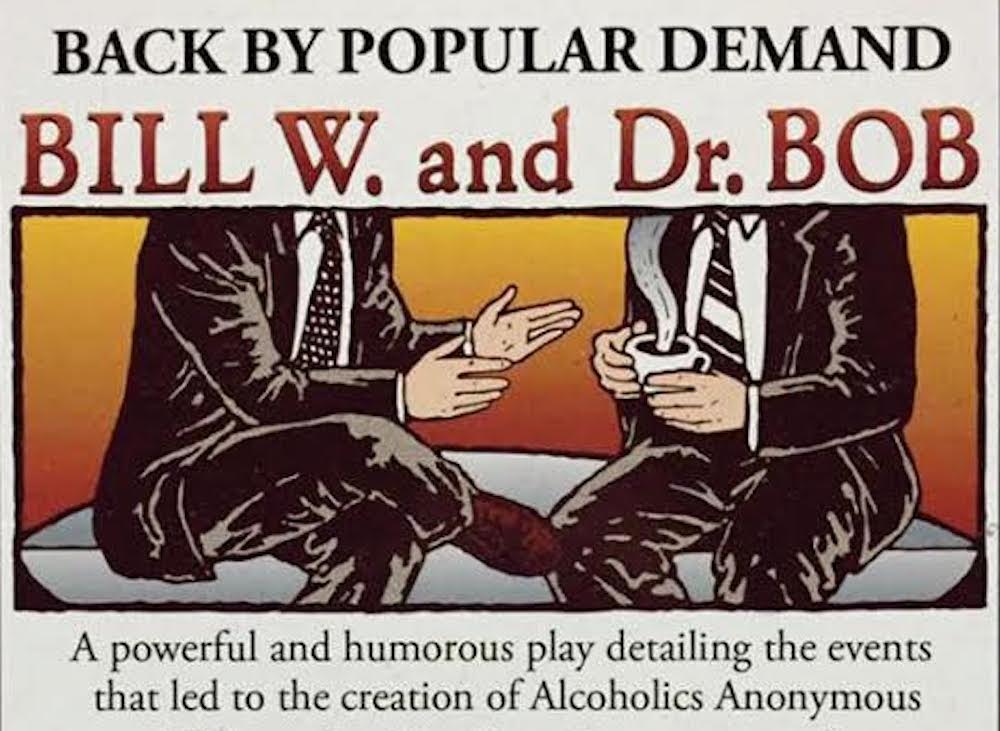
At the NoHo Arts Center, Theatre 68 is presenting a revival of Bill W. and Dr. Bob, highlighting the difficult path that led to the founding of Alcoholics Anonymous. Directed by Ronnie Marmo, who also plays Bill Wilson in half of the performances, the pace of the two-act play by Samuel Shem and Janet Surrey reflects the jazz music of the time, bouncing rapidly from scene to scene like a dramatic acrobat on steroids. Perhaps one of the most impressive achievements is how many times the actors quickly rearrange the minimal set in the dark in order to shift from one scene to the next.
Speaking to The Fix about what the performance signifies, Ronnie Marmo said, “This play means everything to me because these two men saved my life many years ago, and I feel it’s my responsibility to make this available to the public. I couldn’t be more passionate about telling this story. Speaking to the audience after each show constantly reminds me that this is very important for us to continue to do.”
In the first half of the play, the drunken days of Bill Wilson and Dr. Robert Smith (Bill Lippincott) before they met are recounted. During this pinball-like period of alcoholic insanity, our resonant sympathy lies not with the two drunks, but with their respective beleaguered wives, Lois Wilson (Melissa Kite) and Anne Smith (Laura Lee). Performed with a combination of festering anger and desperate love, the two women open our eyes to the pain experienced by the loved ones of alcoholics.
In contrast to the brutal reality of their portrayals, other parts of the play feel more like karaoke. When Bill Wilson has his historic encounter with Ebby Thatcher, the power of that vital meeting fails to translate into the performance, and perhaps the Big Book account by Bill Wilson of that fateful day overwhelms the representation. Given what happens in the second half of the play, this very much could be a case of knowledge hindering dramatic effect. The challenge of playing alcoholics in their cups on stage, however, often feels emulated. This is particularly true when compared to the simmering emotional resentment conveyed by the women.
In the second half of the play, when Bill W. and Dr. Bob meet, a moment of history that lacks a popularized rendering is painted in convincing and powerful strokes. From Dr. Bob’s initial hesitancy to the moment of recognition between the two men, the scene brings out the best in both Marmo and Lippincott. The actors underscore the play’s insight into how the differing personalities of the founders paved the road for the future success of the 12-step program.
While Alcoholics Anonymous certainly needed the ambitious dreams of Bill Wilson, it also required the cautious hand of Dr. Robert Smith. Together, once they successfully secure AA number three, Bill Dotson (Jack Noonan), they have given birth to a miraculous movement that will end up saving millions of lives. Ronnie Marmo and Theatre 68 foster a moving recreation of that moment in time.
Bill W. and Dr. Bob is playing at the NoHo Arts Center in Los Angeles until June 5.
